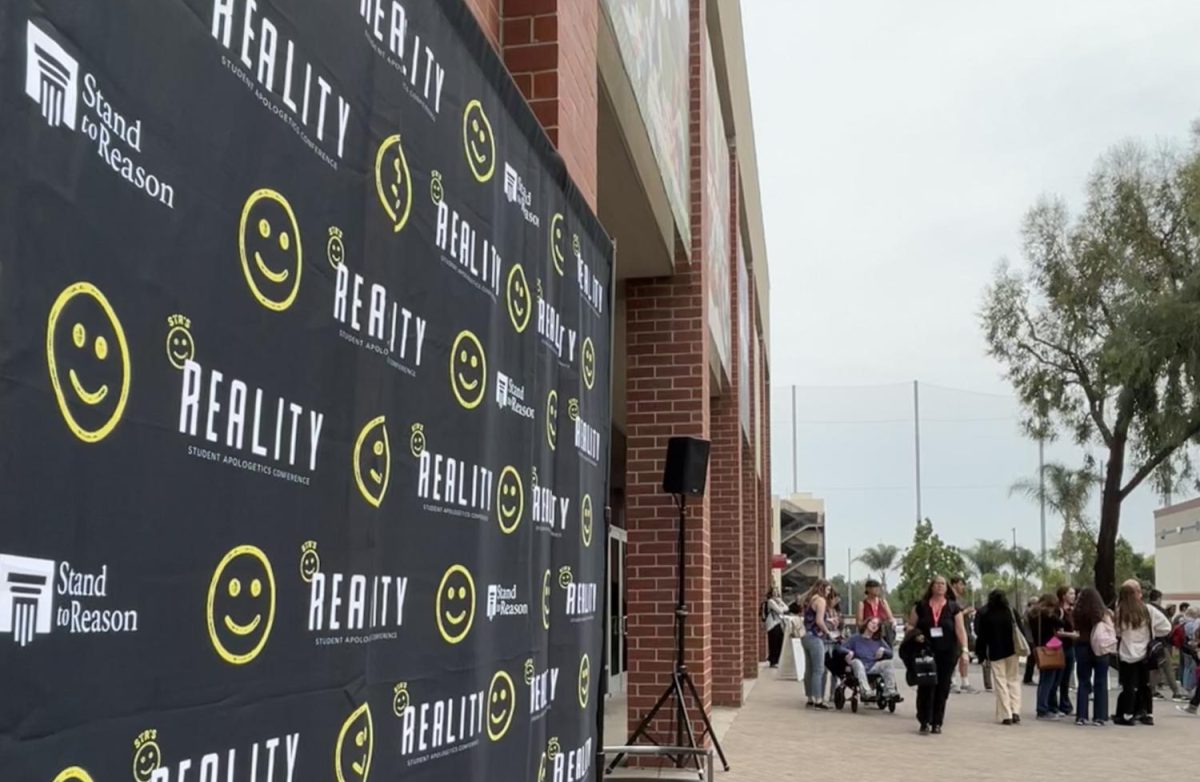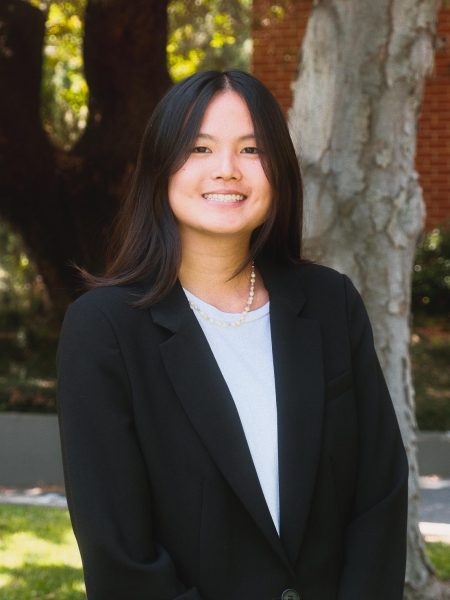Stand to Reason, an apologetics organization that aims to help students learn to defend their faith, is closely affiliated with Biola University. In past years the organization’s Reality Conference was held at Calvary Chapel Costa Mesa but, for the first time, Biola hosted the conference for the weekend of Sept. 22-23. Chase Gymnasium was the main venue, and other buildings were made available for breakout sessions.
Alan Shlemon, an author and a keynote speaker for the conference said, “The people who helped us with the conference are no longer working at Calvary Chapel, so we don’t have any connections there anymore… but we have a lot of connections here.”
Various organizations such as Summit Ministries and Decision Point had tables set up by the Fireplace Pavilion. Biola also had a table with information pamphlets and stickers for attendees. There was also a booth with merchandise for HERITVGE, the band leading worship for the conference.
THE CONFERENCE AT BIOLA
The arrival of hundreds of conference attendees added to the number of Biolans already on campus and prospective students. Campus tours had groups of up to 50 to 60 people. Groups could be seen mingling or rushing to breakout sessions during breaks between main sessions. Some visited the Biola Campus Store emerging with souvenirs.
During the conference’s lunch break, attendees flooded Biola’s cafeteria and Eagle’s Nest. The line for the cafeteria stretched from the entrance down past the Fireplace Pavilion. The line for Eagle’s Nest weaved around the patio and toward the Biola Campus Store.
ABOUT THE CONFERENCE
The Reality Conference is a two-day apologetics conference focused on different themes each year. While college students are more than welcome to attend, it is geared toward high school students.
“It’s a student apologetics conference, so basically the purpose of that is we’re trying to train young believers to understand their faith, understand why they believe their faith, and to be able to respond to the objections that are raised from the culture,” Shlemon said. “And this conference theme is specific on identity. Who are you? What is your identity? And the theme is called ‘Man or Maker.’ In other words, should you listen to man, like culture to tell you who you are, or should you listen to your maker, the God who made you?”
Many speakers are closely associated with or are faculty of Biola University, including Dr. Sean McDowell, who is an associate professor of Christian apologetics. He co-hosts a weekly podcast called Think Biblically where he addresses issues in both the church and the culture. McDowell held a meet and greet for attendees on Sept. 22.
BREAKOUT SESSION FOR DECONSTRUCTION OF FAITH
Tim Barnett, another keynote speaker and a teacher at a classical Christian school, held a breakout session titled “Don’t Deconstruct Your Faith. Do This Instead.” He discussed the Christian figures who have taken to various social media platforms to announce their departure from Christianity after deconstructing their faith. Some mentioned included Hillsong worship artist, Marty Sampson and Derek Webb, who was a former member of the Christian band Caedmon’s Call.
Barnett described the faults of people going on platforms such as Instagram and TikTok to explain their deconstruction. He said that searching for clips or posts about it could be dangerous, especially for younger people. When public figures share personal stories of how they deconstructed, it becomes incredibly impactful to their impressionable audience. He explained that when a person in a role of influence abandons Christianity, everyone in their sphere of influence is collateral damage.
He emphasized that although many influencers use deconstruction and reformation synonymously, they are not the same. Only one causes change according to the Word of God: reformation.
“What we’ve found dominating social media right now is that the process of deconstruction is usually rethinking your faith – here’s the important part – without requiring scripture to understand it,” Barnett said.
He interacted with students by showing examples of social media posts and video clips of people explaining why they deconstructed and asked the students to point out problems with the media’s logic or theology. Barnett explained the importance of using scriptures as a guideline for reformation and noted that deconstruction ignores this step.
“What we want to do is reform. We want to go back to the original [scriptures],” he said. “Unfortunately, a lot of people aren’t reforming to any amount, which is chucking the original and coming up with something new.”
During a round of questions and answers, an audience member asked Barnett what students should do if their role model deconstructs. In response, he pointed out that when an idolized figure deconstructs, people who looked up to them might question their faith and deconstruct as well.
Barnett said, “I would remind my students first look at who you’re following: they’re wrong about so many things.” He added that since humans are flawed, people should follow Christ over anyone else.
He concluded by offering words of wisdom. “I think that what we need to do as a body of Christ is to be, and as individuals challenging ourselves to grow deeper roots,” he said.










